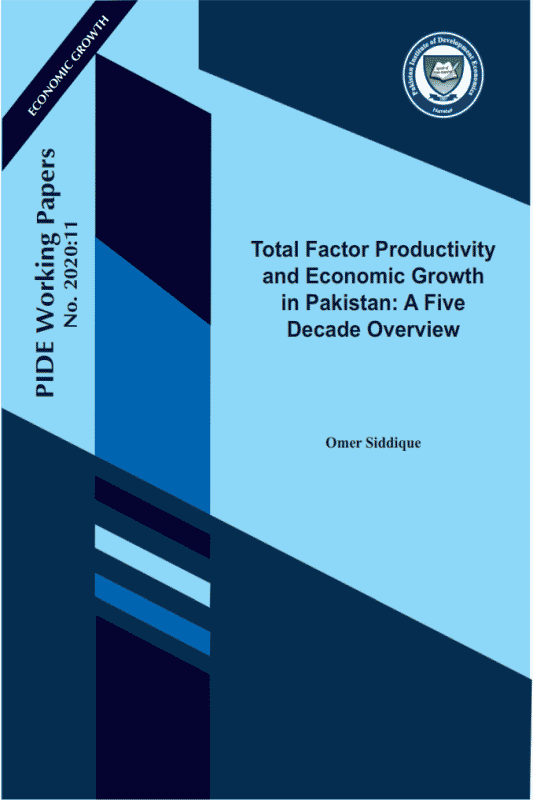
Pakistan Institute of Development Economics
- Home
Our Portals
MenuMenuMenuMenuMenuMenuMenu - ResearchMenuMenuMenuMenuMenuMenuMenu
- Discourse
- The PDR
- Our Researchers
- Academics
- Degree Verification
- Thesis Portal
- Our Portals
Total Factor Productivity and Economic Growth in Pakistan: A Five Decade Overview
This paper traces Pakistan’s TFP and GDP growth from 1972 to 2019. The analysis shows that Pakistan’s TFP and economic growth have declined over time. The sectoral—agriculture, industry, and services—trends are also not different. The TFP and GDP growth rates of the total economy and the three sectors were the highest in the 1980s. In general, Pakistan’s economic growth has been driven by factor accumulation, except for in the 1980s and the 2010s. The analysis further shows that whenever attempts were made to deregulate and liberalize the economy, it resulted in higher TFP growth and consequently in higher GDP growth. Similarly, macroeconomic and political stability also seems to be important factors in higher TFP and GDP growth. The comparison with other countries shows that Pakistan’s TFP growth performance has been reasonable, especially compared with India. However, the experience of other countries shows that to achieve GDP growth above 8 percent, Pakistan needs to enhance its productivity growth to 3 percent or above.



